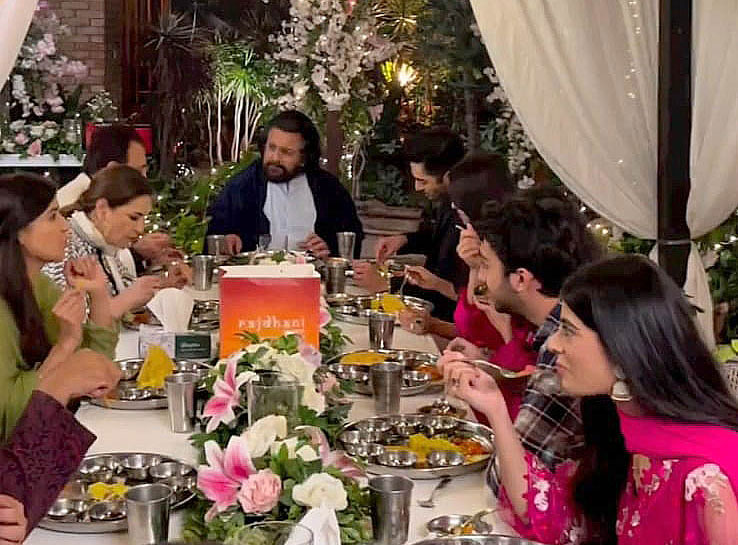Ramzan approaches with the prospects to purify the soul, strengthen the faith, and convalescing empathy and care within one’s home and with those who are less fortunate. It works as a catalyst in bringing family members together as they share the experience of refraining from certain paraphernalia throughout the day. The splendor reaches its supreme when the entire family gathers for iftar, which develops into a time of celebration and togetherness. This period of augmented worship and reflection emboldens everyone to support each other in their spiritual practices. This can include reading and discussing religious texts, attending communal prayers, and engaging in acts of personal devotion. It emphasizes us, to reflect upon the eminence and cachet of a present family.

From one of HUM TV’s most treasured current dramas, Chand Tara, we can also infer how a sense of family can have a significant impact on an individual’s mental health and well-being. Tara’s longing for a large family after her lonely childhood between the empty walls shows the power and clout of a sense of belonging and its effect on one’s mental health. Positive family relationships can provide a supportive and nurturing environment that helps to foster emotional resilience and promote good mental health. One of the ways in which families can affect mental health is through the quality of communication within the family. Wholesome communication skills help family members to express themselves effectively and constructively resolve conflicts. Family is the only unit that can provide undivided attention and emotional support to each other during difficult times. When family members are there to offer comfort, advice, and encouragement, individuals are better able to cope with stress and other challenges that can affect mental health.
Ramzan divulges us into the realization that in addition to emotional support, families can also provide practical support, such as helping with household tasks, when everyone prepares for iftar together, providing financial assistance, and other matters. When families work together to address these practical needs, individuals can focus on their own mental health and well-being without the added stress of daily responsibilities. A close-knit family can have numerous lifelong benefits for its members, including emotional support which makes individuals feel more secure, confident, and better able to cope with life’s challenges. It gives a person increased resilience and a sense of security in the face of adversity. This can lead to better mental health outcomes and a more positive outlook on life and develops a stronger sense of identity and belonging. This can help them to feel more grounded and confident in who they are as individuals, which can be seen in the amusing ongoing show Fairy Tale loved by millions across the country.
Growing up in a close-knit family, individuals can develop stronger social skills, as they are often exposed to a wide range of social interactions within the family unit, which helps them develop healthier relationships and can provide a strong foundation for individuals to build successful and fulfilling lives. Everything comes with an admonition, as much as the positivity of it plays wonders in one’s life, the otherwise can play havoc as well. When family members are unsupportive or critical, individuals may feel isolated and helpless, which can contribute to mental health issues. Poor communication can lead to misunderstandings, resentment, and other negative emotions that can effect mental health and does more damage. So what Ramzan denotes is the analysis and consideration of one’s conduct and to rectify them for the preservation and prestige of the earnest institution of family and create beautiful long-lasting memories.






